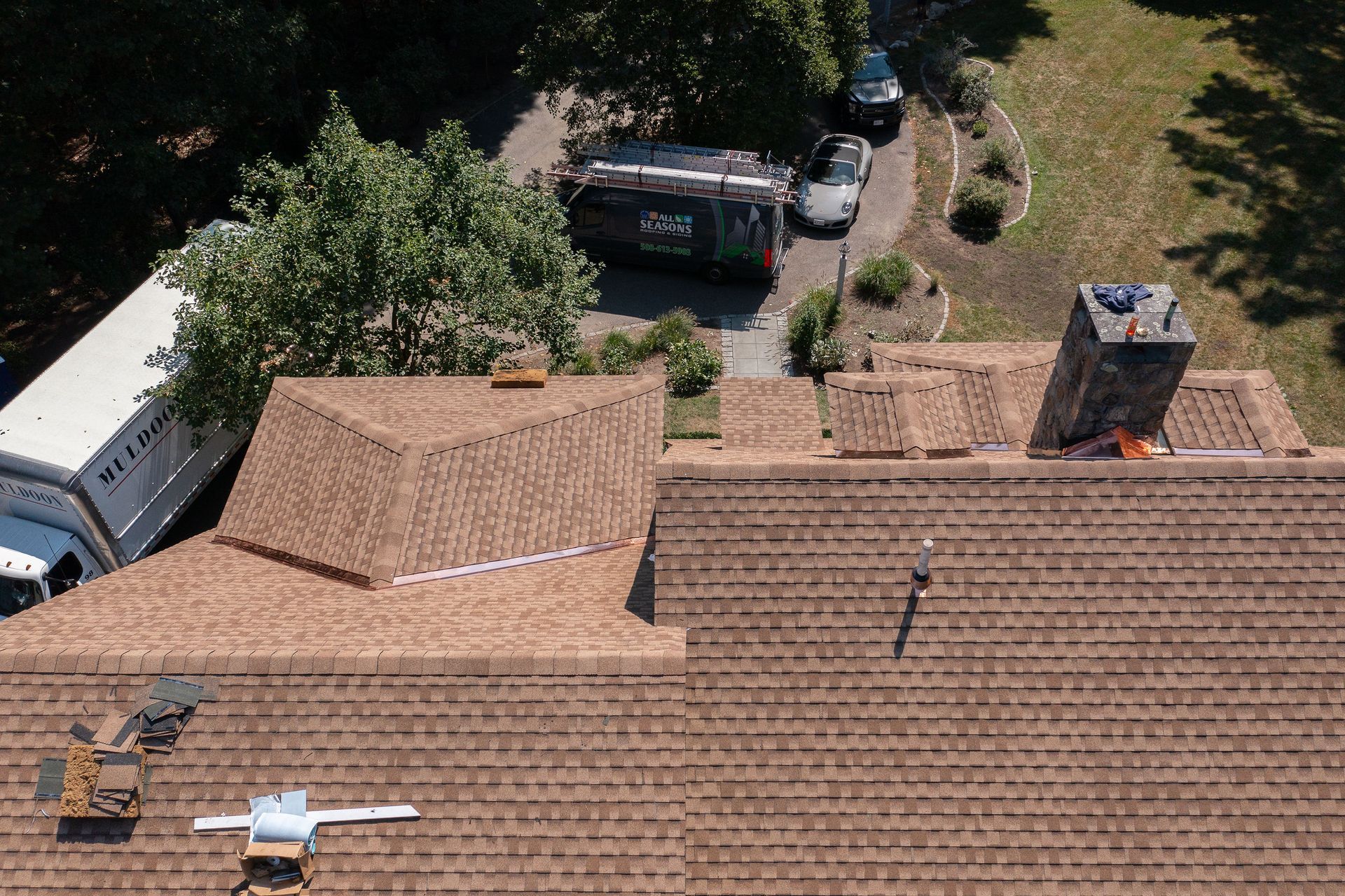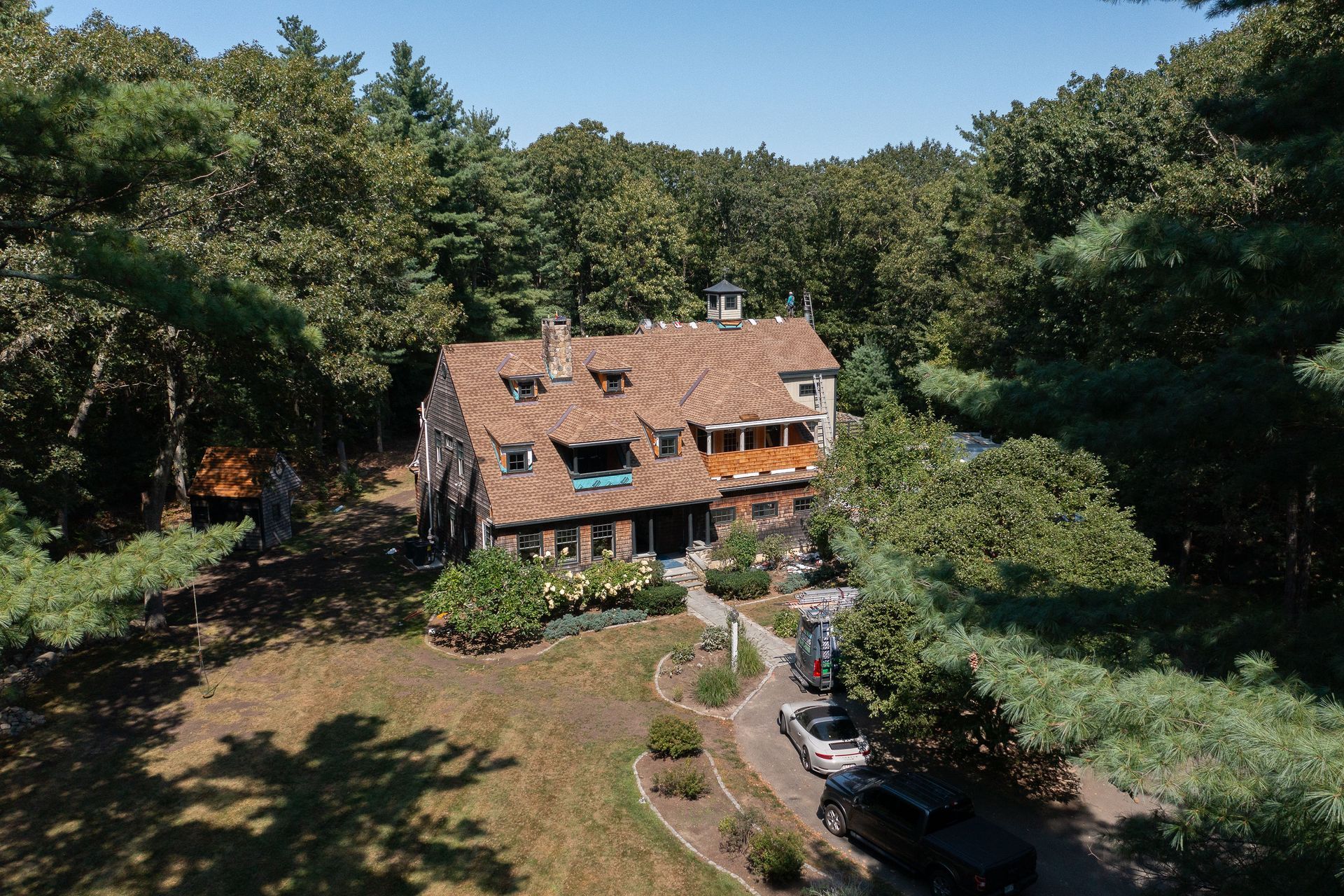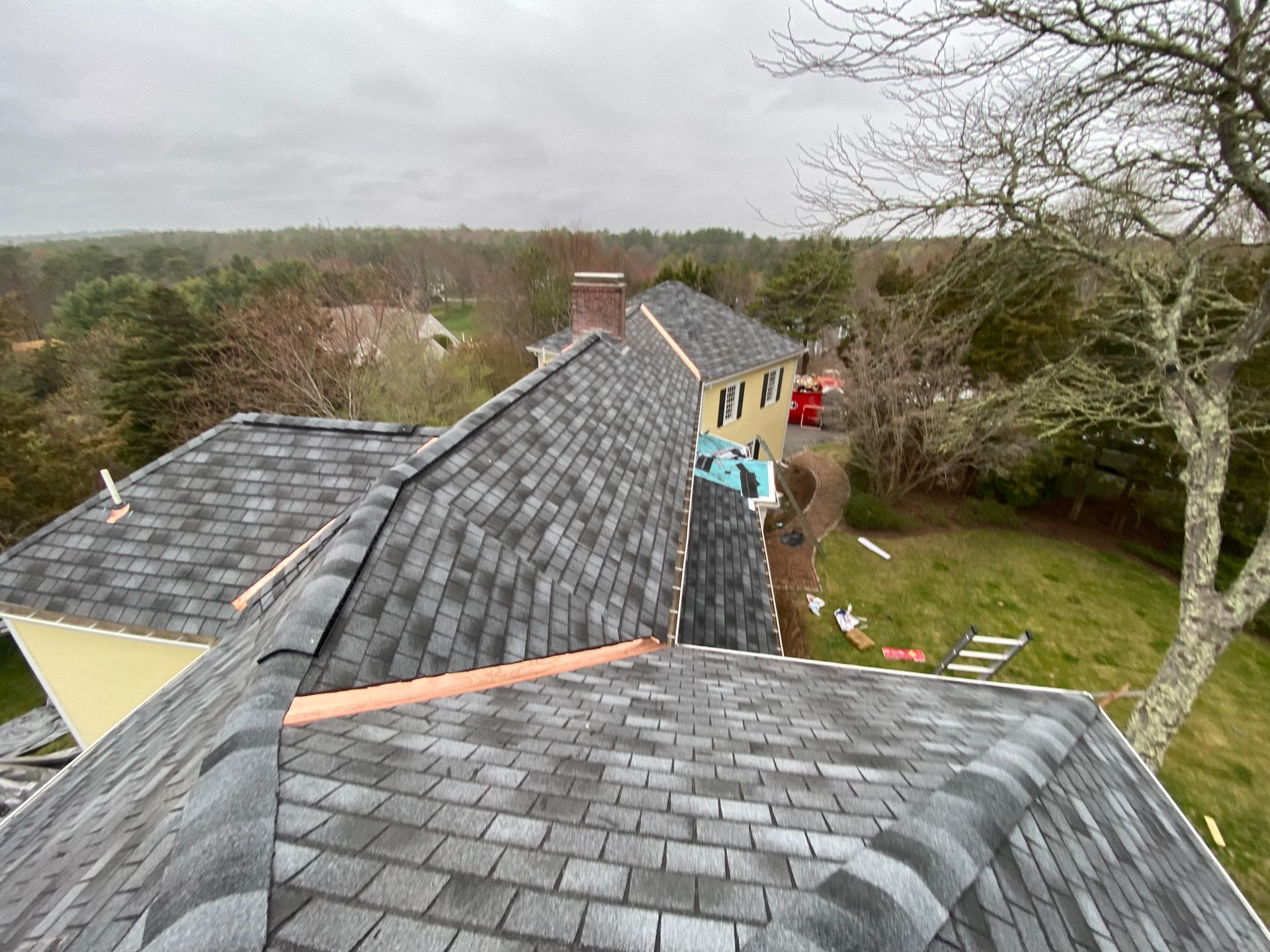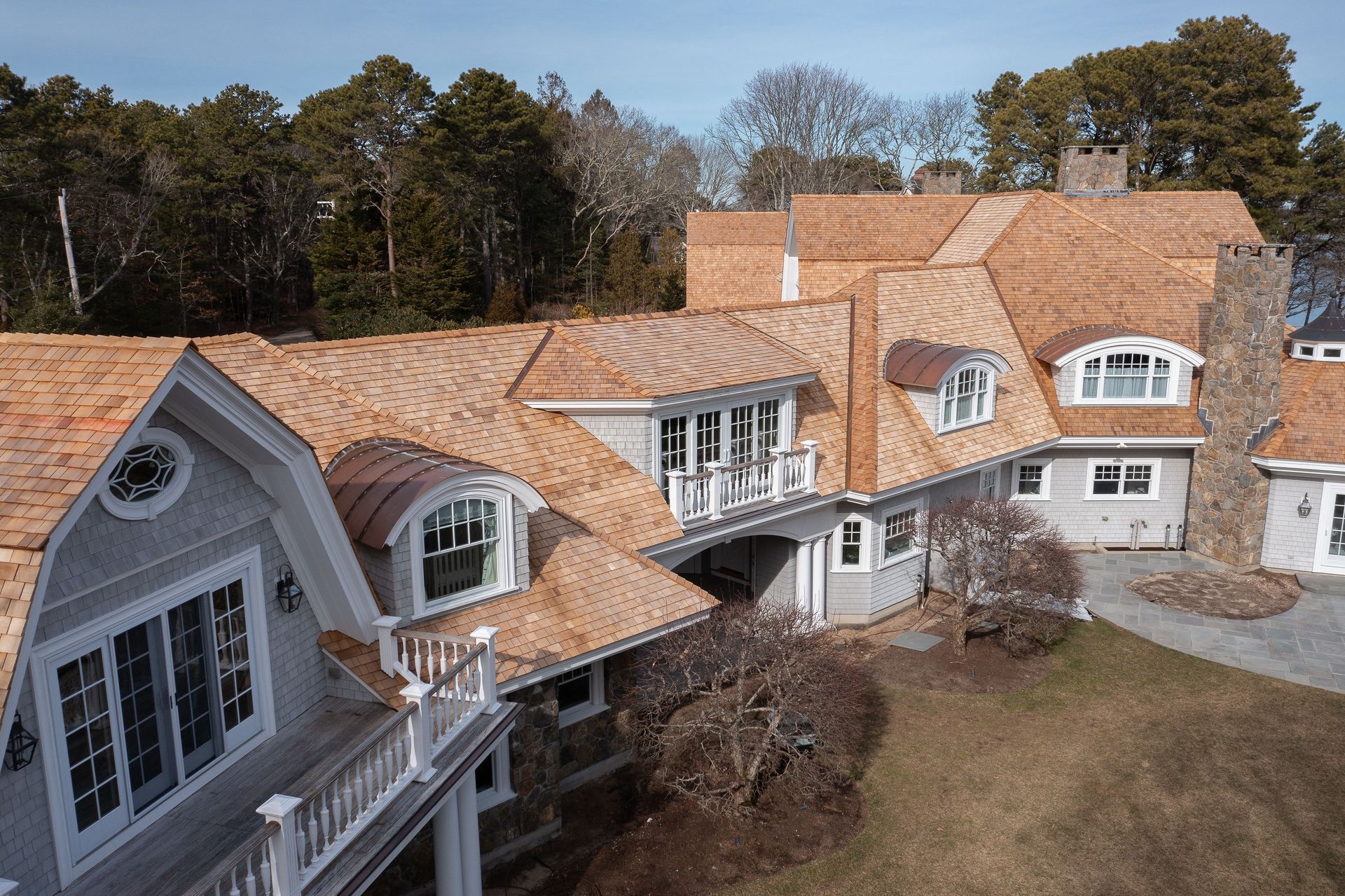How to Prepare for a Roof Replacement
A roof replacement is one of the most significant home improvement projects you can undertake. It’s a large investment and requires careful planning to ensure the process goes smoothly. Whether you’re dealing with a roof that’s past its prime, experiencing frequent leaks, or dealing with extensive damage, preparing for a roof replacement involves more than just hiring a roofing contractor. It’s about understanding the condition of your roof, selecting the right materials, finding a reputable roofing contractor, and preparing your home and surrounding areas for the work ahead.
If you are looking for a roofing replacement contractor in Medway, or are simply in need of roof repair or replacement services, knowing what to expect can help you make informed decisions. In this guide, we will walk you through the key steps you need to take in order to prepare for a roof replacement.
Understanding the Need for Roof Replacement
The first step to preparing for a roof replacement is knowing when it’s time to replace your roof. Regular inspections help you assess the health of your roof and identify issues before they become major problems.
Here’s how you can determine if roof replacement is necessary:
- Visual Inspection: Check for signs of wear and tear such as missing shingles, curling edges, or cracked tiles. Also, look for water stains on your ceiling or walls, which might indicate leaks.
- Age of the Roof: Roofs have a typical lifespan depending on the materials used. Asphalt shingles last around 20-30 years, while metal or slate roofs can last much longer. If your roof is nearing the end of its lifespan, replacement might be necessary.
- Persistent Leaks: While a single leak might be repairable, multiple leaks or recurring problems often signal that a full replacement is the better option.
- Moss and Algae Growth: Excessive moss, algae, or vegetation growth on the roof can damage shingles and lead to deterioration.
Delaying roof replacement can lead to larger problems, such as structural damage or mold growth. It’s better to address roof issues early to avoid costly repairs down the road.
Choosing the Right Material for Your New Roof
Once you determine that you need a roof replacement, the next step is selecting the right roofing material. There are several options available, each with unique benefits and considerations. Here's a breakdown of some of the most common materials used for roof replacement:
- Asphalt Shingles: One of the most common and affordable roofing materials. These are easy to install and come in a variety of styles and colors. However, they don’t last as long as other materials.
- Metal Roofing: Known for durability and longevity, metal roofs can last up to 50 years or more. They’re ideal for areas with heavy snowfall or extreme weather. However, they are more expensive than asphalt shingles.
- Wood Shakes: These provide a natural, rustic look but require maintenance to prevent damage from rot and insects.
- Clay Tiles: Durable and fire-resistant, clay tiles are common in hot climates. However, they are heavy and may require additional support.
- Slate Roofing: Extremely durable, slate can last over 100 years. It’s expensive and heavy but provides long-term value.
When selecting the material, think about factors like climate, your budget, and your aesthetic preferences. For example, if you live in a region prone to storms, metal roofing might be the best option, while in a sunny area, clay tiles could help with cooling costs.
Hiring a Professional Roofing Contractor
Hiring a qualified roofing replacement contractor is crucial to ensure the job is done correctly. Here’s how to choose the right contractor:
- Check for Licensing and Insurance: Make sure the roofing contractor is licensed and insured. This protects you in case of accidents during the project.
- Experience and References: Look for a roofing contractor with a proven track record. Ask for references and check online reviews.
- Get Multiple Estimates: It’s always a good idea to get multiple estimates. This allows you to compare prices and understand what each estimate includes.
- Review Warranties: Ensure the roofing contractor offers a warranty that covers both the materials and the labor. A reputable contractor will stand behind their work.
Hiring a professional roofing contractor ensures your roof replacement is done correctly and up to code. It also provides peace of mind knowing that your contractor understands local building codes and will follow the correct procedures.
Preparing Your Home and Surroundings for Roof Replacement
Before the roofing contractors arrive, you’ll need to prepare both the inside and outside of your home. Here’s how to prepare:
Exterior Preparation:
- Remove Fragile Items: Remove any delicate items or decorations from your yard that might be damaged by falling debris.
- Cover Plants and Shrubs: Protect your plants and shrubs with tarps or sheets to prevent damage.
- Clear Your Driveway: Move vehicles out of the driveway to give the contractors easy access to the site.
Interior Preparation:
- Remove Fragile Items Inside: If your roof replacement involves work on the attic or upper floors, remove any fragile items from shelves or walls.
- Cover Furniture: Protect furniture and floors inside the house to prevent dust and debris from settling on them.
- Prepare the Attic: If you have an attic, clear the space to give workers access to the underside of the roof.
Communication with Neighbors:
- Let your neighbors know about the project in advance. Roofing replacement can be noisy, and informing them ahead of time helps manage expectations.
During the Roof Replacement
Once the project begins, here’s what you can expect during the roof replacement process:
- Removal of Old Roofing: The contractors will begin by tearing off the old shingles or roof materials. This step generates a lot of debris and noise.
- Inspection and Repairs: After the old roof is removed, the roof deck is inspected. If there’s any damage, it will be repaired before the new roofing is installed.
- New Roof Installation: Once the deck is ready, the new roofing material will be installed. The process usually takes several days, depending on the size of your roof and the weather.
During this time, it’s important to stay out of the way for safety reasons. Keep pets and children away from the work area, and ensure that the contractors are following safety standards.
Safety Considerations:
- The workers should use personal protective equipment (PPE), including helmets, harnesses, and safety shoes.
- All roofing contractors must follow OSHA safety guidelines to prevent accidents.
Post Roof Replacement Tips
Once the roof replacement is complete, follow these post-installation steps to ensure the longevity of your new roof:
- Inspect the Work: After the project is finished, thoroughly inspect the new roof. Ensure that the shingles are properly installed, flashing is intact, and gutters are cleared.
- Understand Your Warranty: Ensure you have clear documentation of the warranty on both the materials and labor. Understand what is covered and for how long.
- Ongoing Maintenance: Regularly inspect your roof for any damage, especially after storms. Clean your gutters regularly, and address any missing or damaged shingles promptly to avoid further issues.
Proper maintenance will keep your roof in good shape for many years and prevent the need for costly repairs.
Conclusion
Roof replacement is a big project, but with careful planning and preparation, it can go smoothly. From choosing the right materials to hiring a professional roofing contractor, there are many steps involved in ensuring a successful replacement.
For those in need of reliable, professional roofing services, All Seasons Roofing offers expert roofing solutions in Medway. As a trusted roofing replacement company, they provide high-quality materials and experienced contractors to ensure your home’s roof is in top condition. Whether you need a full roof replacement or roof repair, All Seasons Roofing has the expertise to handle the job with precision. Contact All Seasons Roofing for all your roofing needs, and let them help you protect your home with professional roofing services.
Name, Address, and Phone
All Seasons Roofing
21 Summer Hill Rd, Medway, Massachusetts, 02053, US
508-233-4333
.





Share On: